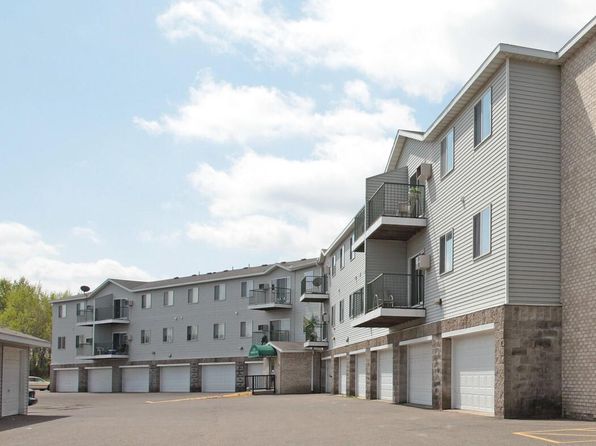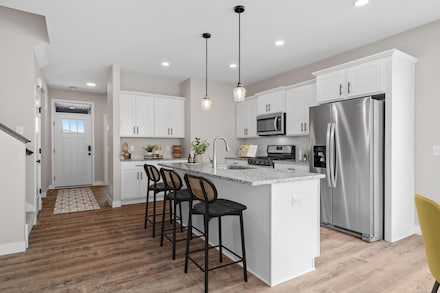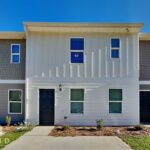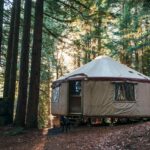- Finding the Right Apartment
- Top Schools in Woodbury
- Budgeting for Rent
- Apartment Amenities
- Proximity to Schools
- 5 Ways to Find Apartments Near Schools
- 7 Tips for Apartment Hunting
- Important Factors to Consider
- Your School District Choices
- How to Budget Your Housing Costs
- What to Look For in Apartment Hunting
- The Perks of Near-School Housing
- How to Spot a Safe Area
- Checking Local Regulations
- Choosing the Best Apartment Layout
- Tips for Apartment Application Process
- Choosing an Apartment within Your Budget
Finding the Right Apartment
Finding the perfect apartment is a big deal, you know? It's like hunting for the ultimate place to chill. So many choices! Let's dive into this, right?
Finding your perfect pad is all about a few key steps. First, make a list, then a priority list. What do you need?
- Budget: How much can you realistically spend?
- Location: City, neighborhood? Close to your daily stuff, or okay to drive?
- Space: How many rooms do you need?
Next, do your homework: check online listings, walk around neighborhoods you like, ask friends for advice! Check real estate agents in your local area and what they are working with! Also, check rental history to find if place is safe and legal for a person to live there without future trouble.
Finding that perfect spot, it's all about matching what you need with what's available. It takes time and effort! Be patient!
Top Schools in Woodbury
Woodbury? Sounds fancy! Okay, top schools are about academics, but also about your feel for the environment!
Top schools typically:
- High graduation rates.
- Great standardized test scores.
- Extracurricular options – sports, music. Extra fun things to join, for a lively high school.
Talk to students, and even better, go and check out those classrooms yourself to figure out your top-picks. Do some deep digging on your potential school of choice. Don't hesitate to see for yourself if they truly deliver on their promise. Research their teaching staff, past student successes and involvement.
Also consider their unique specialties and programs and think if they match your goals or career interest.
Budgeting for Rent
Rent isn't just an expense; it's a major chunk of your income. Planning and saving for rent is just as important, in reality. Seriously, take time to save enough money before considering an apartment and save even more for utilities!
Here's a game plan:
-
Track your spending: Look closely! What do you spend monthly, actually? Write them all down.
-
Calculate your monthly expenses: Take out everything besides the rent (and essential stuff, bills) to discover if you can comfortably live there.
-
Estimate monthly rent expenses: Decide on how much can you realistically put down on the monthly rent, not an impossible sum of money. Calculate it.
-
Consider utilities and bills separately: Don't add them with your budget; they might be more than what you expected. Account for that amount, as well.
-
Set a goal to put money down monthly, which is how you ensure you stay under control for rent!
A strong budget keeps you afloat and in check! Don't underestimate it, if done correctly, this will lead you toward a happier renting experience.
Apartment Amenities
What's in an apartment that matters? Amenities, for sure. But, keep it realistic. Don't be tricked, don't get swept up by all of those fancy amenities!
Apartment amenities matter but can impact how much rent you have to pay monthly and your spending.
List some important amenities for you:
- Parking: Key for some people!
- Laundry: Some apartments have in-unit or building washers/dryers – it is super handy to not have to bring your own, especially!
- Fitness center or gym: A necessity for most, but can also boost the rent too.
- Pool or clubhouse: Consider whether that's essential.
Think if this matches your needs! Are the amenities important enough to raise or drop that location in priority?
Proximity to Schools
Being close to school isn't just convenient—it can affect your daily routine a ton. How much you value that location, consider it wisely.
How near is too close to schools for students to walk comfortably without spending the extra energy and money? This directly relates to how often and easy it will be to go to schools for study and academic meetings.
This could mean saving valuable time and stress from dealing with long commute times, and other hassles. Look closely to where it sits near by or at locations far from city center. Look carefully.
Proximity to schools is critical to balance against location, apartment budget, and amenities in your apartment-hunting strategy.
5 Ways to Find Apartments Near Schools
Finding a place to live near your child's school is important, it's more like hunting treasure, really! So here are ways to sniff out the perfect digs near those campus walls.
- Online Apartment Search Sites: Use sites like Apartments.com or Zillow! You can use filters to zero in on locations near schools; many have that feature. These websites usually offer current pricing, so no need for hours in an empty, expensive office
- School Websites: Often, schools have websites for student or parent info! You know there's great stuff buried there. Look into resources or even housing bulletin boards! Maybe one teacher is just listing. You just might find your answer!
- Local Real Estate Agents: Finding the perfect place takes skill; hiring a realtor to dig for those hidden treasures helps big time! Real estate agents are like a good GPS guiding you to exactly where you need to be. Their local market knowledge saves time, energy, and perhaps a tiny bit of heartache.
- Neighborhood Flyers/Local Listings: There's power in being aware! Don't overlook old fashioned paper flyers, church bulletin boards, even local community boards – great places to find some gems! You'll usually know about these from family, neighbours, friends etc. That way, you save energy, time. Everyone's friendly in that sector
- Driving around and Checking Local Bulletin Boards: Driving near schools and making a quick look on the neighbourhood bulletin boards can lead you to some hot tips. Sometimes landlords post their openings right there. Easy and practical approach. It gives a true vibe for the areas. And honestly? The feeling you get from seeing the building up close? That's amazing!
7 Tips for Apartment Hunting
Apartment hunting? Don't stress! It's less daunting if you do your homework:
- Make a Detailed Budget: Apartment hunting isn't just finding a pretty building; It is a lot of work. Don't start without calculating and deciding how much you can manage. List and estimate expenses—from rent, deposit, to other fees. Be very, very accurate! Write it down properly; nothing's worse than hitting a budgeting brick wall.
- Prepare your Documentation: You need to get this stuff ready – that means income verification, IDs, etc., ready. Make it super convenient. You do not want your time wasting in the waiting line, or having to constantly check! A system to have them in a row and ordered helps enormously, this will prevent potential chaos during your hunting session.
- Ask Lots of Questions: During viewings or any apartment exploration, have a ton of questions about the building. Is there a party vibe near your building? Or if kids have to deal with this party vibe during learning time, these are great questions! What about laundry machines – essential! Know if maintenance response time is reasonable. Safety first. Know the noise level – very important, for people or yourself who don’t want noise all day. Find out when those maintenance teams go!
- Prioritize Essential Features: Don't get bogged down by fancy decorations; focus on basics, such as adequate bedrooms/bathrooms. What's really necessary to you – not too big a deal? Know what are the absolute basics – no extra worries. Your mental wellbeing relies on it! You just want it to work for you
- Inspect Carefully During Tour: During the showing, don't just gaze; examine all aspects, from the kitchen, plumbing systems, flooring, any cracks to doors. Is that kitchen cabinet secure and solid? Will it support the stress of all that you'll likely add there? It is also a fantastic way to ensure it is really well maintained. Any signs of problems indicate trouble and lack of proper care. That's not where you want to invest in, right!
- Look beyond just amenities: Sometimes a quiet space, a small balcony – simple comforts are great ways to relax. These kinds of subtle conveniences can matter more than a huge living room for some! Check parking too if that’s crucial for your type!
- Get everything in writing: When you are signing a lease or even some form of an agreement, ensure that all terms are clearly outlined on a proper and secured agreement document, otherwise problems will easily appear in the future. Also, make sure every agreement is written and double checked with a reliable individual who can do your homework, in your place
Important Factors to Consider
Hunting an apartment near a school requires some extra thinking – make your needs a priority; that's essential!
- Proximity to Schools and Activities: Think commute time to and from school, after-school activities – the practicality is more than just style or prestige of a view; it should fit a student’s life well! Calculate time properly for the rush and commute to be part of the calculation
- Safety and Security: Consider the building's and surrounding neighborhood's security – any risks for your children to travel safely? This is fundamental; there is no chance of sacrificing this priority – safety should be a top priority, more so for a family. No negotiations, no chances. Be mindful that things can happen fast in such situations. Safety and health is an essential parameter.
- Budget: Rent prices will naturally vary widely, based on areas; factor in all fees and associated charges from any lease/rent, it will matter; keep this in mind if this area is part of your planning
Your School District Choices
Choosing a school district depends on several factors – make it easy with planning; write everything down, write notes too – don't leave this to the last day or even week
- Academic Reputation: Explore different school districts' reputations in academic standards—research this area to know about your potential chances if kids have to join or go to university from these districts.
- Extracurricular Activities: Find a district that matches kids' passions—what's the local school system’s view on students' passions? What's supported in the learning environment to develop talents? Some local environments do support these, look at the facts – look into sports facilities. Also make a quick assessment for any musical instrument courses that schools might offer
- Social Considerations: Think about local safety and community connections. Where else could the kids hang out?
How to Budget Your Housing Costs
Planning housing costs effectively – know where to draw the line—especially in a long run
- Estimate Total Housing Expenses: Calculate not just rent but all associated fees, including utilities, deposits, and potentially insurance – to be very, very certain in your figures; don't guess
- Calculate Disposable Income: Calculate your disposable income realistically, making room for emergency funds or expenses – you don't want problems arising
- Avoid Overspending: Stick within your budget limits—no excessive desires; remember, you might not find a very amazing spot in the starting area if you keep getting things done and do a perfect job every step. There might not be perfect options immediately
What to Look For in Apartment Hunting

Source: zillowstatic.com
Finding the perfect pad is a big deal. Think of it as your personal space, your sanctuary, your place to call home. So, let's make the process easier.
Key Factors to Consider:
- Budget: First things first, how much can you afford? Make a strict budget, stick to it.
- Location: Is the location close to work? Commuting is important.
- Amenities: Gym, pool, parking – how important are these? Write it down!
- Size and Layout: How many bedrooms, how much space do you need?
- Security: Do you need extra locks or cameras? Think safety!
Questions to Ask Yourself:
- Do you need extra space for guests?
- Is the neighbourhood noisy?
- What is the estimated time to commute to work and school if any?
Crucial Details to Scrutinize:
- Lease Agreement: Understand your rights, terms, and obligations.
- References: Check with prior residents if you can to see what to expect.
- Property Management: Are they responsive? Talk to other renters.
- Utilities: Know how much you are paying per month for utilities!
The Perks of Near-School Housing
Living near school often saves loads of time, hassle, and worries about transportation for students and families.
Time-Saving Advantages:
- Less travel time! Students spend less commuting time for studies and for family!
- Dedicated time to focus on academics. Less fatigue!
Convenience Factor:
- Convenience for drop-offs, pick-ups.
- Family peace of mind!
Community Connection:
- Strong sense of community if the building or housing complex has several families.
Financial Considerations:
- Rental rates might be higher than areas further away!

Source: cloudinary.com
How to Spot a Safe Area
Safety is crucial! Here's how to spot a secure neighbourhood.
Observation is Key:
- Check out the area around dusk.
- Walk around during different hours of the day.
Talk to Local Residents:
- Ask about recent incidents in the area or any specific issues in the neighbourhood!
- Check local blogs!
Look Out for Signs:
- Street lighting: More street lights usually indicate greater safety.
- Crime Reports: Examine local news articles, police reports, and crime stats to get insight into local criminal activities!
- Community Activity: Many active local groups that arrange parties and events in neighbourhoods generally lead to safe zones!
Building Security:
- Observe if security measures are visible around buildings, e.g., cameras, security staff, guard houses.
Consider Your Gut Feeling:
Trust your intuition when deciding if an area feels safe for you. If you doubt it, skip it!
Checking Local Regulations
Knowing the local rules is essential!
Legal Considerations:
- Research zoning laws to make sure the use is permitted.
- Study pet policies carefully! You might get penalized for non-compliance!
Apartment Management Rules:
- Understanding rules from the lease agreements, rental policies.
- Look out for HOA fees, association membership policies!
Communal Use Policy:
- Observe if community services are active in your chosen apartment area!
Safety and Security Standards:
- Familiarize yourself with any mandated regulations for safety!
Enforcement:
- Contact local authorities for enforcement information!
- Know where to report violations or get clarity on issues!
Choosing the Best Apartment Layout
Apartment layouts are all about fitting your life.
Space Allocation:
- Plan how to arrange furniture! Take pictures from similar units to imagine it before paying rent or reserving!
Efficient Utilization:
- If your family is large, consider extra rooms!
Personalization:
- Make the area personal!
Furniture Considerations:
- Consider the layout you need in terms of placement of furniture, storage space!
Strategic Storage:
- Evaluate space availability before paying anything! Do some homework in similar locations, talk to past tenants about their experiences.
Lighting & Views:
- Choose places with ample light to save energy!
Accessibility:
- Evaluate how easy to get to important destinations are within the area or the housing complex itself!
Tips for Apartment Application Process
Finding the perfect apartment can be tough, but applying correctly is key. First, gather all the required documents, like your ID, income proof, and credit report. A perfect application requires all of these things, which need a perfect scan for approval. This avoids delays and possible rejection, as these things are very important, and your credibility depends on all of them being completely accurate.
Next, carefully read all application requirements from the listings to be clear of the specifics. Be ready, have your required information prepared. If your profile shows a lot of promise, prepare the perfect answers.
Thorough preparation helps you make a killer application. Always be truthful, accuracy makes your profile shining. Honest is the best policy.
Evaluating Lease Agreements
Lease agreements are contracts, so understanding them thoroughly is crucial. Look for unclear phrases that might raise any worries, as well as things that look unclear or unusual to you. This will help avoid confusion, issues in the future.
Look at the monthly payment amount in relation to your total income and the terms associated. Look at renewal conditions; what if there’s any violation of the conditions, you want clarity here, so you can understand in advance the implication on future renewal and possible extension of stay or not.
Be sure the lease terms make sense and are appropriate for your financial situation and your long-term plans. Ask questions.
How to Ensure a Secure Lease

Source: homes.com
Before signing the contract, double-check all of the important details are correct to minimize any surprises or unexpected outcomes in the future. Understand penalties clearly so you can deal with situations more effectively if anything happens unexpectedly. Review the rules and penalties that have been set so you’re aware.
Make a note of your apartment’s important address so it is easier for you to deal with emergencies and other critical things if you are looking to deal with certain property-related situations and get the things done swiftly and more easily if there are unexpected property-related problems or delays with services or appliances and you’re hoping to rectify those things quickly with less of a hassle or any sort of problem.
Confirm everything in writing to be certain of what’s in your favor, to prevent any possible disagreements in the future, keep records for safety measures and easier reference for future actions. Keep notes, all conversations about your agreement should be written for clear record, it's like a journal or a reference of sorts and you want all these details recorded in black and white to prevent problems later in the contract period, these things ensure your agreement is secure and reliable, and helps with proper and clear understanding of each other.
Meeting with Property Managers
Professionalism and a clear communication strategy is key for meeting with property managers. Be well-prepared with the relevant information at hand, and do your best to project a confidence and positivity that can only be found with a good approach to dealing with professionals in this type of work area.
Actively listen to your property manager’s answers to questions, to any explanations of what needs to be dealt with in future. Note any clarification regarding anything unexpected in the terms of the agreement, to avoid misunderstandings and prevent further trouble and delay. Show respect in your approach and demeanor, to establish a healthy rapport, it shows professionalism to treat property managers with respect and make them comfortable talking with you so they'll listen more easily to your requests and concerns.
Avoid interrupting them or being too abrupt during discussions as good communication is always welcome, and it leads to healthy negotiations for solutions.
Asking the Right Questions
Asking good questions will reveal useful insight into your intended accommodations.
Before signing the lease, prepare a checklist of key questions, for clarity, especially those that concern certain types of maintenance and repairs in your unit in the future.
Inquire about policies surrounding maintenance requests. You will probably need it when it comes to situations and things like repairs and other unexpected things you’ll have to deal with during your stay in the property. The maintenance of your stay is as important as you’re taking precautions on this.
When the issues are understood upfront, everyone involved knows what to anticipate and can prepare more confidently for unexpected situations if necessary. The expectation of how these things should go makes dealing with situations much smoother in case such issues do arise at any point during your stay. It can ease some tension and worries as things are understood ahead of time, everyone has agreed and acknowledged the process, especially about possible fixes. Ask what they offer and the types of maintenance as this part of an understanding.
Understand pet policies (important if you own pets), parking arrangements, and all other details for your convenience and proper setup and planning of a smoother experience.
These are vital aspects, making clear details make life so much easier, in planning to create the best possible solution and avoiding any unwanted headaches later on in the day.
Choosing an Apartment within Your Budget

Source: swamprentals.com
Finding the perfect place to call home often comes down to a few key factors, and one of the biggest is affordability. Your budget isn't just a number; it's your financial freedom to enjoy a life without constant stress. A great first step is figuring out exactly how much you can realistically spend.
- Know your income: Gross vs. net, fluctuating earnings – make a list! Don't guess, use figures.
- Estimate expenses: Utilities, transportation, groceries, fun money – add every thing to the calculation!
- Look for rent options that feel comfortable: Do not spend more than 30% of your salary! This includes all housing costs (rent + bills, everything), don't ignore any add ons!
Before you start looking at apartments, make a thorough plan about expenses and saving to know what's comfortable. Don't forget about hidden fees – security deposit, first month's rent, broker fees. Many landlords are reasonable with upfront fees.
Having a financial plan will help a lot, even if things change. Budgeting lets you avoid stress related to sudden expense or delay in money coming!
Understanding Available Amenities
Amenities are so helpful. What features really matter? Pools, gyms, laundry, pets, and parking. A quiet courtyard can reduce noise stress!
-
Must-haves: Some places include important facilities and conveniences in their fees! Find the facilities you really need and check for these facilities! Check every detail before you go, don't rely just on the photo or description.
-
Worth it or not?: Do you use your car daily or are you happy walking to stores? Decide before investing money on an apartment based on amenities you may or may not need.
-
Value is key: Some places charge extra money for pet fees, other features. Understand if facilities make a significant difference or don't affect much. Decide by comparing your cost vs value for services included or charged separately.
A little bit of effort on understanding needs for facilities helps! Look into these details! Some landlords may hide hidden costs so always confirm with landlord details for total costs.
Selecting an Apartment with Good Neighborhood Features
Where do you feel comfortable and safe, really, is the question! Neighborhood feels, safety, schools and nearby stores matter. What features contribute to your good feelings? A great environment to feel comfortable!
- Walkability: Shopping? A friendly coffee shop? Is it quiet or a buzzing center? Choose a safe environment which feel perfect and relaxed, which is closer to all the good stuff. Consider locations!
- Safety rating: Safety and good environment to enjoy your days outside is needed! Make your neighborhood check list. Get data from various safety sites about your options. A safe feeling goes a long way.
- Family friendly: How's your ideal home with kids? Choose based on your family life-style! Find a good local environment that includes quality kids facilities. If you don't have a kid now, may be good to think about possible changes later. Make list of all the great options and choose what is right now and in near future too!
Pick a neighbourhood you love to live in! Many of the new communities are in such places that include safe roads, kids playing areas and stores close-by which contributes greatly in living comfortably and peacefully!
Choosing Apartments Near Top School Districts
School district matters, mostly for parents. It's important!
- Academic Reputation: Consider academic reputations for choosing a perfect environment for kids or even just for quiet peaceful neighborhood life! Do schools focus on arts? Does a good school feel close to what you desire for your future or kids future, and think long term and for the family?
- Proximity to School: Schools that are walkable or within easy distance from your future home should be convenient and efficient for everyone in family. This will be worth to check when selecting your ideal place.
- Resources: Check extracurricular activities nearby, if any nearby; check out sports facility availability in your neighborhood, what schools have clubs, activities or how close these activities and schools are.
Consider schools as important as choosing your home and a part of neighborhood for your family! Carefully make sure school reputation has a positive outcome in overall neighbourhood.
Finding Transportation Options from the Apartments

Source: shopify.com
Don't miss how easy is transportation. This is for your commute, for entertainment, for outings.
- Public Transportation: Walking is ideal but nearby bus routes, train stations make traveling faster. Many areas will include details about all the nearby means to commute, include train, bus, metro. Read details.
- Car ownership: Do you have a car? Your budget will affect that too. Having a car provides some independence, while public transit is handy for those without personal vehicles. Many areas have well planned means to easily find a bus route that is walkable! Many cities and communities offer several buses to help commute. This detail will help avoid issues later on!
- Proximity to Highways: Easy access to main highways often speeds up your daily commute, to school, work or nearby facilities. Many neighborhoods make access to a good transport available nearby! Easy access to transport make life easier.
Commute can be less stressful by choosing apartment which is near transportation hubs or have facilities of transportation near to the neighbourhood! Planning your future trips with all means to travel will help in minimizing issues.



